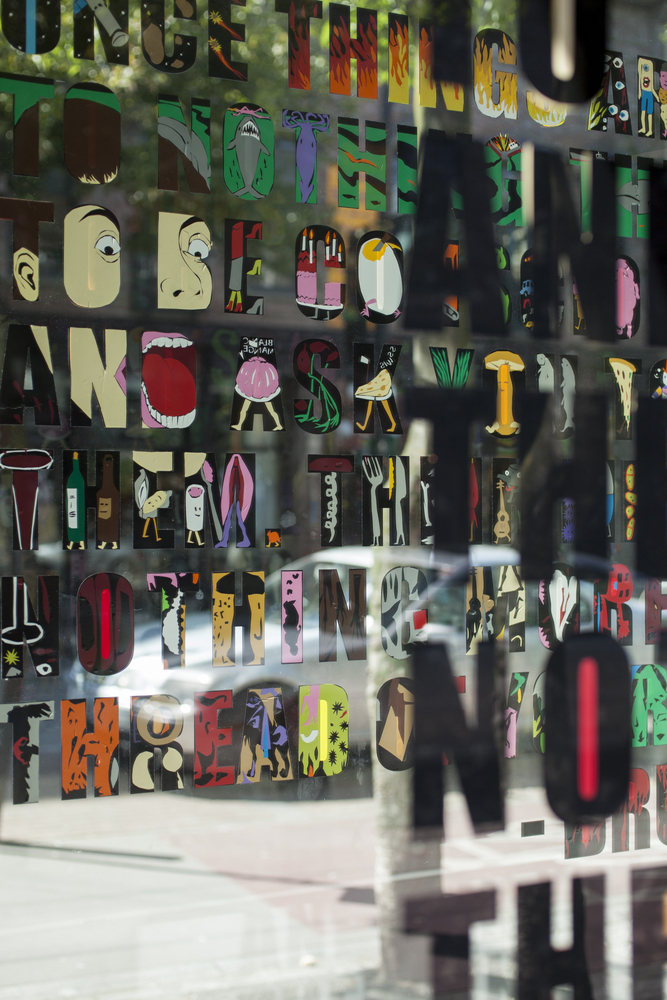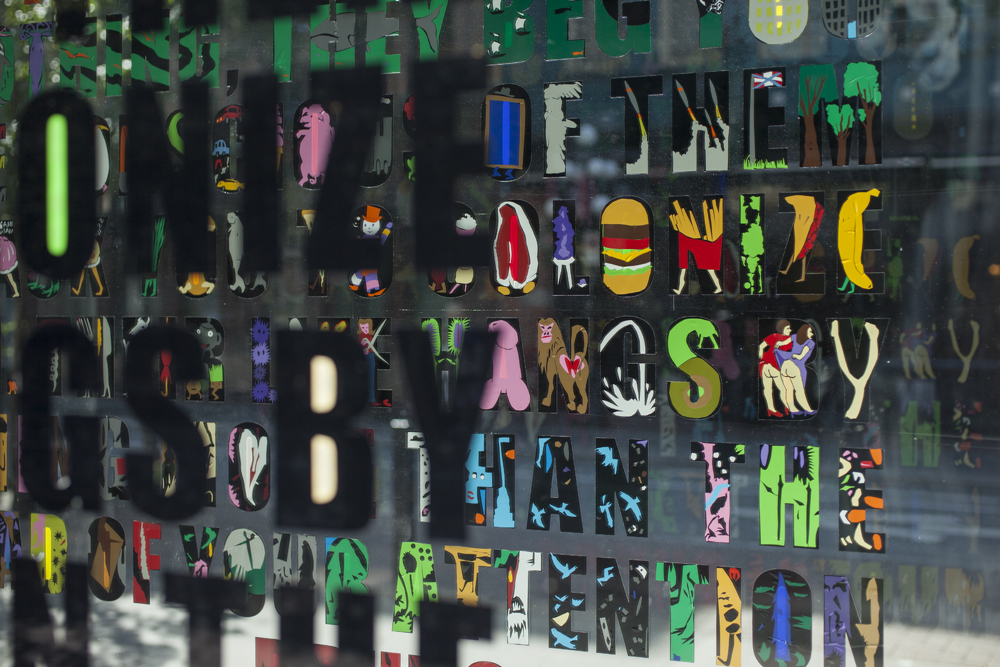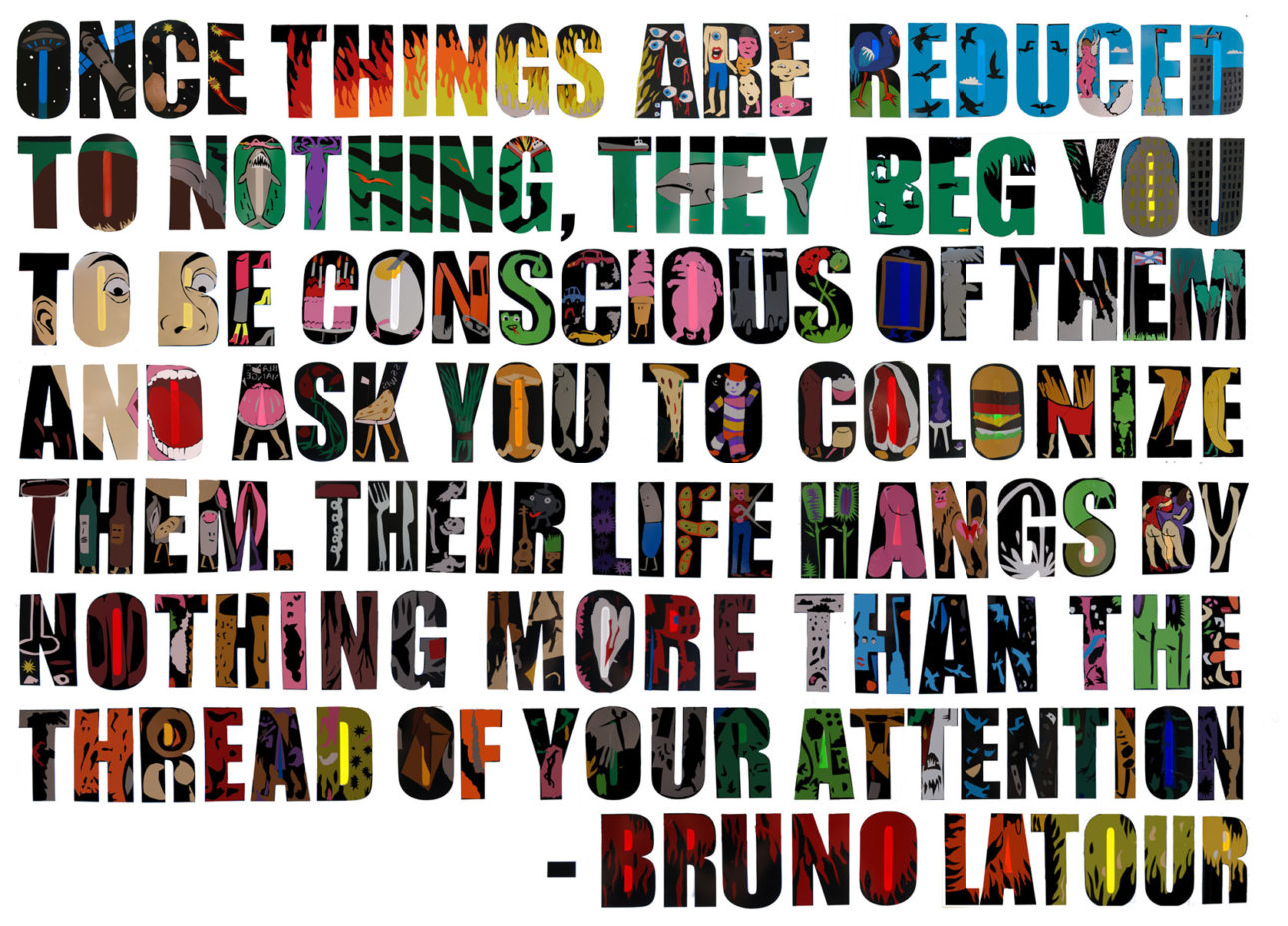Once things are reduced
to nothing…
Once things are reduced to nothing…
adhesive vinyl on glass and mirror, approx. 7 × 10 feet
Artspeak, Vancouver BC
2013
“Once things are reduced to nothing they beg you to be conscious of them and ask you to colonize them. Their life hangs by nothing more than the thread of your attention.”
—Bruno Latour, The Pasteurization of France (1988)
Bruno Latour’s words are brought into relation with a new site of viewing. Two sentences escape their original context within a book to collide with subjects who would not encounter the words otherwise. The words take on new meaning through their placement on the window, in a space straddling the Downtown Eastside and Gastown in Vancouver, but also through imagery collaged on the reverse of the vinyl text, resulting in alternate networks of relations. The letters and words become hybrid creatures. This gesture is one not only of supplementing, but also of aide-memoire—the desire to memorize an author’s words by inserting them into an unfamiliar visual frame, associating them with a new picture, translating and materializing them within a lived situation.
Why “things”? Things are not just things as we have come to objectify them. For Latour things have agency. Things refer to a more ancient meaning of “assembly” or “gathering,” relating to things of concern—that which brings people together to discuss what binds and divides them. The things represented on the underside of the text illustrate a procession of “colonized” objects and humans, subservient to the forces of consumerist culture. This procession of things is floating on an abstract amalgam of “leftovers”—the pieces of vinyl left over once the process and application of cutout imagery is complete.
In aspiring to a democratization of relations between human and non-human entities, Latour outlines how things can enter into complex new relations. In his book We Have Never Been Modern (1991), Latour claims that, under the purview of a symmetrical anthropology, the destruction and repression of nature and other cultures were dominant under the modernist project. Now we no longer see nature and culture as distinct and divided. They all become part of the Middle Kingdom of quasi-objects and quasi-subjects. “It is time, perhaps, to speak of democracy again, but of a democracy extended to things.”
.





